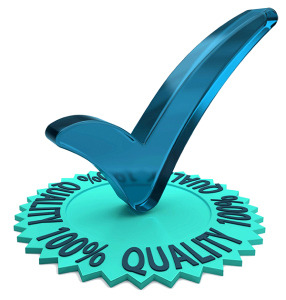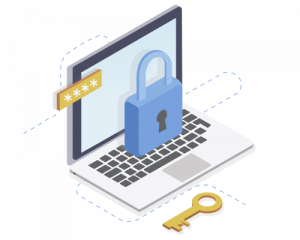
Download our latest white paper on translation quality, and learn why you should never assume all language service providers are equal in the services they provide.
Quality Assurance
CSOFT Health Sciences has developed a process for quality assurance to ensure that every medical translation project meets quality standards in a cost-effective and timely manner. We are certified in ISO 17100:2015, ISO 9001:2015, and ISO 13485:2016 to ensure our customized solutions meet global regulatory requirements. Our subject matter expert linguists have at least seven years of experience and work with in-country reviewers and project style guides to meet industry standards. CSOFT offers an online translation management ecosystem for one central location to leverage real-time translation memory and terminology management through our innovative cloud-based technology. Every step of the way, CSOFT has you covered.
Learn more about our quality assurance process.
Data Security
With over 20 years of experience in medical translation, CSOFT Health Sciences understands the importance of data security to our clients, and we take nothing for granted when confidentiality is a concern. Our well-documented and fully traceable information data security policies, checklists, and quality records leverage the best practices of ISO 27001. They are designed to protect everything from source data to translations. From our 24/7/365 data monitoring and advanced encryption to our access control measures, you can be sure that your project data is safe from start to finish.
Learn more about how CSOFT prioritizes data security.
CSOFT has created actionable metrics designed specifically for the life sciences to measure translation quality.
There is no one true way to ensure translation quality throughout the localization process but there are general “rules of thumb” that can be applied to help you on your way to producing a good quality translation.
Using In-Country Reviewers
Providing Previous Translations and Style Guides
This can result in translations being inconsistent in relation to previous translations so that on a website, for example, there might be a differing translation for a term that appears on multiple pages across the site.
Even more common, though, is translation companies misunderstanding the required style in which a company wants the translation to be in. Through simple communication, however, and a company’s style guide being provided prior to the translation, this situation can be avoided, leaving both parties happy.
CSOFT works with companies to leverage previous style guides or will work with your enterprise to create one.
Using Language Service Providers (LSPs) with the Correct Certifications
One such certification, the ISO 9001 for example, is the world’s most widely recognized international quality management standard. So, if an LSP is ISO 9001:2015 certified, you can be sure that they will deliver quality to the highest standard. When it comes to translating medical documentation, there are also certifications that relate to each specific field.
So, if you wanted to translate documentation relating to medical devices, for example, you should look out for an LSP that is ISO 13485:2016 certified.
Providing Previous Translations and Style Guides
By assigning one point of contact to the LSP, and communicating regularly with your LSP’s contact that has been assigned to you, you can vastly reduce the chance of problems occurring throughout the process.
It is also important to work towards a long-term relationship with your provider and singular points of contact often result in this. The more familiar the LSP becomes with your style of content, the more consistent and culturally accurate the translations will be.
While these rules for improving translation quality are crucial, choosing the right language service provider to begin with will set you well on your way. Here at CSOFT, we specialize in medical device, pharmaceutical, biotechnology, and clinical research translations and are fully ISO certified.

